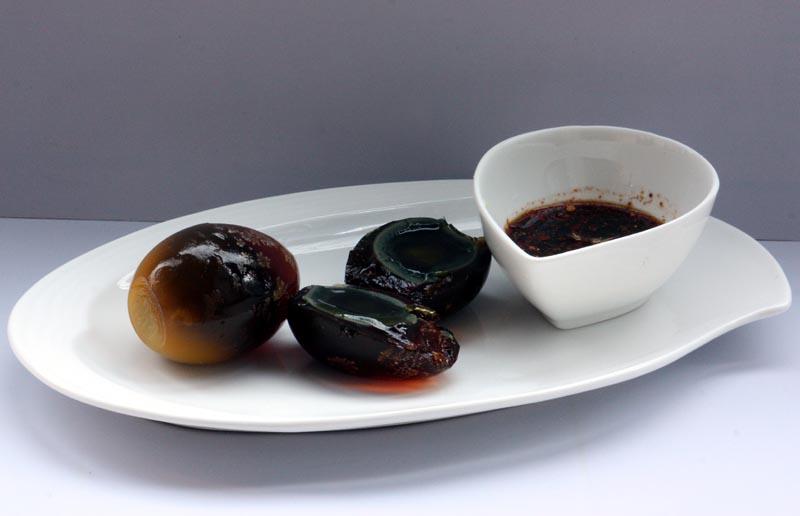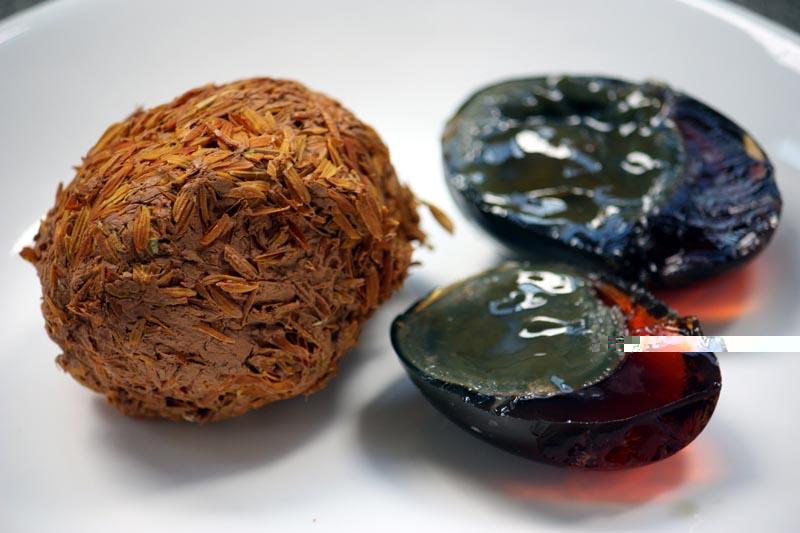2 hours ago, Thanks for the Crepes said:
So liuzhou,
Are you able to enlighten us as to how these preserved eggs are actually made? I have seen "century" eggs at S-Mart, but been afraid of them. If you've tried them, how do they taste?
I'm sure it's possible to preserve eggs. After all, it's common here to pickle them in vinegar. They won't keep for a hundred years, though. The "century" name is off-putting to us Westerners.
Hey! I'm a westerner, too!
Let's remember that "century eggs" is a western name, too. None of the Chinese names for these resemble "century eggs" in the slightest. The two most common names are 皮蛋 (pí dàn) and 松花 (sōng huā). Sometimes, the two are combined to give 皮蛋松花 (pí dàn sōng huā).
As to how they are really made, let me quote my blog.
"They are usually duck eggs, but can be made from chicken or quail eggs. There are two main types.
The more traditional type are made by taking the unshelled eggs and coating them in clay-like mixture of quicklime, salt and rice husks. After about two to three weeks they are ready to eat. The mud is washed off, the eggs are shelled and they are eaten, usually with a vinegar, soy sauce and ginger dressing. Here in Liuzhou, chilli is also usually added to the dressing. They also turn up in soups or are served with rice porridge. These ones are around ¥1.50 each.
A more modern method involves soaking the eggs in a brine of salt, calcium hydroxide, and sodium carbonate for ten days followed by several weeks of ageing. They are then eaten in the same way. They are slightly cheaper at ¥1.20 each.
Both types are widely available in markets and supermarkets."
¥1= 15 cents USD
I've tried them often. I like them a lot. I know many people are put off by the appearance and expect something foul and rancid, at best.

However, I remain convinced that, in a true blind tasting, few people would know that they were eating anything other than a hard boiled egg. They may notice that they are slightly firmer, but without being rubbery and that the taste is a bit more intense than a regular egg, but not ridiculously so. I have described them in the past as "exaggerated eggs".

Mud cured preserved eggs





